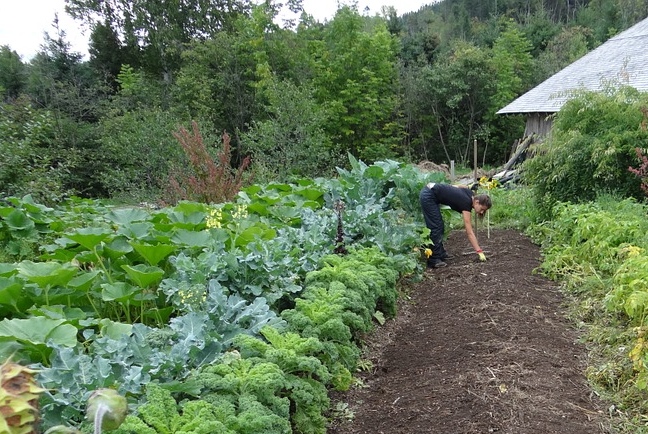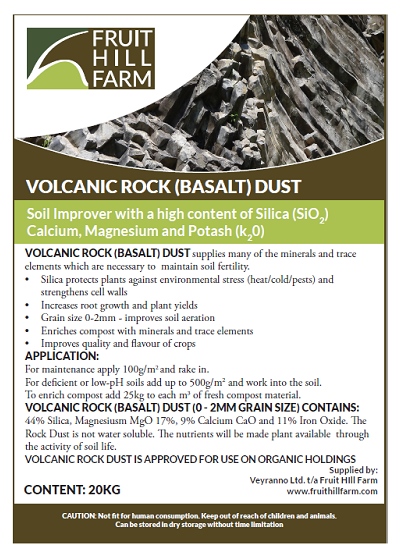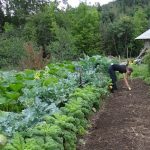We use cookies to make your experience better. To comply with the new e-Privacy directive, we need to ask for your consent to set the cookies. Learn more.
What is Basalt or Rock Dust?

Basalt is an igneous rock created through the cooling and solidification of magma and lava. When ground down into a fine powder, it makes a very good soil improver. Igneous rocks like basalt and granite have the highest mineral content, with basalt providing a greater balance of nutrients for optimal plant health and vitality.
Basalt, or rock dust, continues to deliver a steady flow of nutrients over time, even as it decomposes. Basalt’s slow-release benefits make it an effective way to minimize deficiencies, particularly with fast-growing crops that experience periods of rapid nutrient uptake
No amount of organic matter added to the soil can make up for mineral deficiencies. If your crops are performing poorly, even with the benefits of compost, slow release fertilizer and good drainage then the soil could be mineral deficient. A soil test is always a good idea to help point you in the right direction.
As decomposing rock material reacts with soil micro-organisms and plant material, the rock material releases elements like calcium, magnesium and iron. Basalt contains a high content of readily metabolisable silica and lime which promote soil fertility. Remineralization with rock dust is a low-cost, high-impact way to aid in the regeneration of soil.
Silica
The chemical analysis of basalt reveals that it is approximately 44% silica, 9% CaO (Calcium Oxide) , and 11% iron oxide.
Plants benefit in many ways from adding silica to the soil. These benefits include greater tolerance of environmental stresses, such as heat, cold, drought, salt build up, mineral toxicity or deficiency. They also, experience accelerated growth rates, and improved resistance to insects and fungal diseases. Silica is an essential building block for the structure of your plants.
Plants incorporate silica into their cell wall, which then acts as a barrier against invading fungi such as powdery mildew and Pythium (root rot), significantly reducing the need to use fungicides. Additional silicon is stored as protection and foundational support between cells, making plants more resistant to insects and other environmental stresses, such as heat or drought.
Thicker cell walls also build bigger stems and branches, which in turn allows more food and water to move through the plant. Leaves are thicker and darker green compared to those grown without soluble silicon. This produces a stronger plant overall, with higher chlorophyll production and greater rates of photosynthesis and growth. As a result plants are able to produce heavier fruits, vegetables, and flowers on branches that support the extra weight. The shelf life of cut flowers and specialty crops is also extended
The benefits of silica are particularly evident in stressful situations. Following a fungal infection, greater deposits of silicon are found around the affected plant tissue showing that silicon is selectively accumulated at the site. The silicon deposited at the sites of infection form stronger, harder cell walls in order to deter the fungus.
Application rate
For soil improvement with regular use about 100-150g/m², or 1000 kg / ha.
For soil remediation and in acidified soils up to 500 g / m²
When composting sprinkle about 20 kg / m³ of compost material.
Avaiable in 4kg or 20kg bags
Approved for use on organic holdings subject to approval from your certification body.

